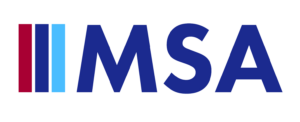
The fusion of artificial intelligence (AI) into our everyday lives is nothing short of a modern marvel. From simple chatbots that handle customer service queries to sophisticated algorithms predicting stock market movements, AI continues to define and redefine the boundaries of what technology can achieve. But with great power comes great responsibility. As students, educators, and professionals, it’s essential to address and understand the ethical considerations that accompany AI’s rise. To remain at the forefront of this tech-driven era, it’s vital for us to equip ourselves with the skills and knowledge needed for jobs in an AI future.
The Allure of AI
Before diving into the complexities of ethics, it’s essential to grasp AI’s magnitude and the reasons behind its rapid ascent.
- 1.) Efficiency: Automated processes, powered by AI, can sift through vast amounts of data at lightning speed, providing insights and conclusions faster than any human could.
- 2.) Adaptability: Machine learning, a subset of AI, can adapt to new information and change its behavior accordingly.
- 3.) Personalization: From tailored advertisements to personalized healthcare recommendations, AI provides bespoke experiences for users.
However, with these benefits come challenges that need addressing, especially in the realm of ethics.
Ethical Concerns in the Age of AI
Bias and Fairness: AI is only as good as the data it’s fed. If this data contains biases, the AI can amplify them. For instance, facial recognition software has been found to have racial and gender biases, leading to potential misidentifications and unfair targeting.
Transparency: The ‘black box’ phenomenon in AI refers to the opaqueness of some algorithms. When users or those affected by AI decisions can’t understand how a conclusion was drawn, it poses transparency and accountability issues.
Privacy: AI’s ability to gather, analyze, and use data can lead to significant privacy concerns. The line between helpful personalization and invasive surveillance becomes blurrier with each advancement.
Job Displacement: While AI creates new job categories, it also makes others obsolete. This displacement can have wide-ranging socio-economic implications. To mitigate this, workers must actively future proof their careers by upskilling and embracing continuous learning in this rapidly evolving landscape.
Guiding AI with Ethical Principles

Understanding the concerns is just the starting point. Here are some foundational principles that can guide ethical AI development:
- 1.) Transparency: Ensure the processes behind AI decisions are clear. This transparency helps in building trust and makes it easier to identify and rectify biases.
- 2.) Accountability: Developers and users of AI systems should be held accountable for their actions and the actions of their algorithms.
- 3.) Inclusivity: Ensuring diverse datasets and inputs in AI development can counteract unintentional biases. A more inclusive AI is a fairer AI.
- 4.) Fairness: Strive for algorithms that are fair and don’t discriminate against any group, intentionally or unintentionally.
- 5.) Safety: Always prioritize the safety of the public and users. An AI system should undergo rigorous testing to ensure it doesn’t pose unintentional harm.
Education: The Key to Ethical AI
To ensure the next generation of AI developers, users, and regulators understand and address these ethical challenges, education is paramount.
At Washington Technical Institute, we emphasize the ethical dimensions of technology in our curriculum. By melding technical proficiency with a robust understanding of ethics, we aim to produce graduates who can navigate the complexities of the modern technological landscape responsibly.
Beyond education, there’s a pressing need for clear regulations and standards around AI development and use. By advocating for responsible AI, both at the industry and governmental levels, we can ensure that the technology’s advancement aligns with societal values and norms.
In Conclusion
AI is a powerful tool, one that holds immense potential to reshape our world. But like all tools, its impact – positive or negative – is determined by the hands that wield it. By emphasizing ethical considerations and championing responsible AI development and use, we can ensure that this technology truly serves humanity’s best interests.
Here at Washington Technical Institute, we remain committed to guiding our students and community through these complex intersections of technology and ethics, ensuring that our graduates aren’t just technically proficient, but also ethically informed. In the age of AI, this combination is more critical than ever.
If you’re ready to enroll and start your training to enter a high-paying career without adding a four year or two year college degree, you can register for your program online through our website. Still have questions about our programs? Feel free to call us at 800-371-5581 or text us at 952-465-3702. Our admissions specialists will be happy answer whatever questions you have.


